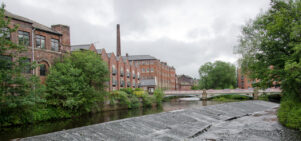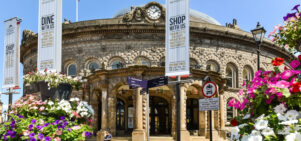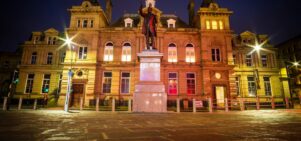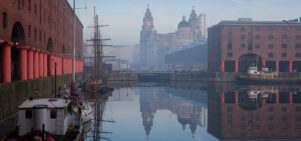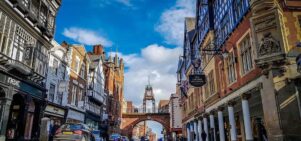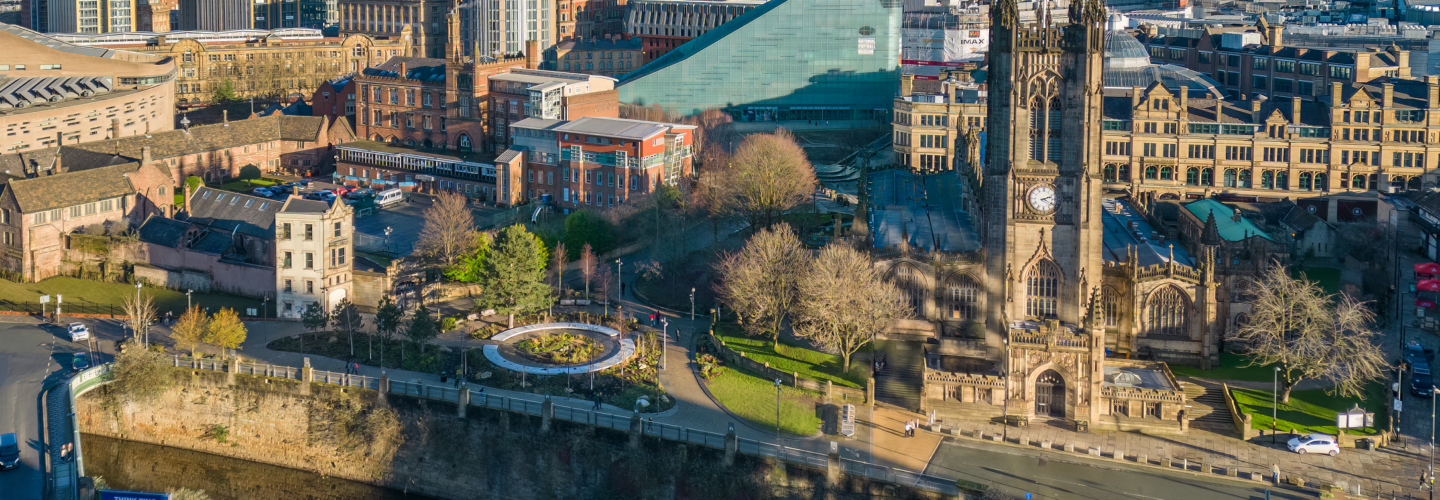Manchester International Festival: Maxine Peake & the Masque of Anarchy
Desmond BullenShelley’s epic poem, written in the wake of the Peterloo Massacre, gets a theatrical airing in the place that inspired it.
From the first, Manchester International Festival has made good on its ambition to produce singular new work that speaks to a global audience. Faced with such a laudable aim, it may seem churlish to observe that, in doing so, the terrain on which its productions have been performed has sometimes seemed incidental. No longer, as one of this year’s events in particular attests: a theatrical interpretation of Percy Bysshe Shelley’s epic The Masque of Anarchy, considered by many to be the greatest British political poem ever penned.
While London has long had its psychogeographers, eager to divine meaning from its ungainly sprawl, Manchester has instead been haunted by its own ghosts: the dead of Munich, the victims of Brady and Hindley, and the martyrs of St. Peter’s Field. The Peterloo Massacre of 1819 is one of the more ignominious chapters in English history. On a bright August day, an estimated 60,000 working people, most in their Sunday best, converged on St. Peter’s Field (a site close to the present-day Radisson Hotel), marching under banners demanding Reform, Universal Suffrage, Equal Representation and – as if anticipation of events a century and a half away – Love. Despite obeying the organiser’s injunction to comport themselves with “cleanliness, sobriety, order and peace”, panicked local magistrates ordered the reading of the Riot Act, and – when the attendant yeomanry (many with personal axes to grind) were ineffective in dispersing the crowd – the waiting hussars attacked, their guns and sabres leaving an estimated fifteen dead and hundreds more injured.
It’s an apt setting for an event that could be seance or exorcism, funeral mass or rallying cry
This act of indiscriminate slaughter, committed by a nation upon its own people, was widely reviled (although most decidedly not by the government, who sought to prosecute the victims and eyewitnesses rather than the perpetrators), and led – in time – to the establishment of The Manchester Guardian and one of the most extraordinary poems in the English canon. The Masque Of Anarchy was not published during Shelley’s lifetime, and it is not difficult to discern why; it is nothing less than a furious call to pacifist insurrection, in which sitting members of the Parliament of the time are explicitly identified with the allegorical figures of Murder and Hypocrisy, in verses framed in the imagery of a latter-day Book of Revelation.
Written in its own time, of a specific place, Shelley’s words nevertheless resonate across centuries and nations, the repeated insistence “Ye are many – they are few” catching exactly all that is and always will be unjust and untenable in the act of oppression. And what invocation could be more powerful than to recite such hallowed words so near to the site where the innocent were severed from consciousness? The partially restored Grade II-listed Albert Hall on Peter Street, closed to the public for some forty years, is to be the apt setting for a performance that could be seance or exorcism, funeral mass or rallying cry.
Such sensitive artistic choices are in careful hands. Director Sarah Frankcom has been at the Royal Exchange since 2008, and she and Bolton-born Maxine Peake – herself no stranger to channelling the dead in the wayward and wonderful 1612 Underture – have previously collaborated on a number of notable productions, not least amongst them last year’s adaptation of Strindberg’s Miss Julie. In the twilight of three summer’s evenings in July, Shelley’s words will resound on the soil where the blood that inspired them was spilled, and the ghosts of Manchester will speak once more to the world.

